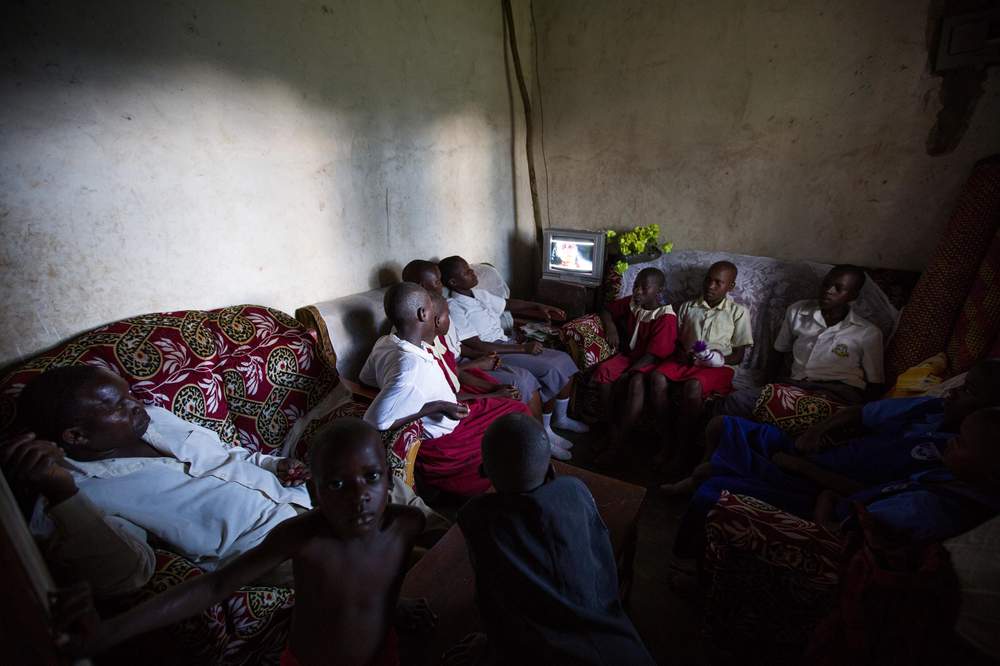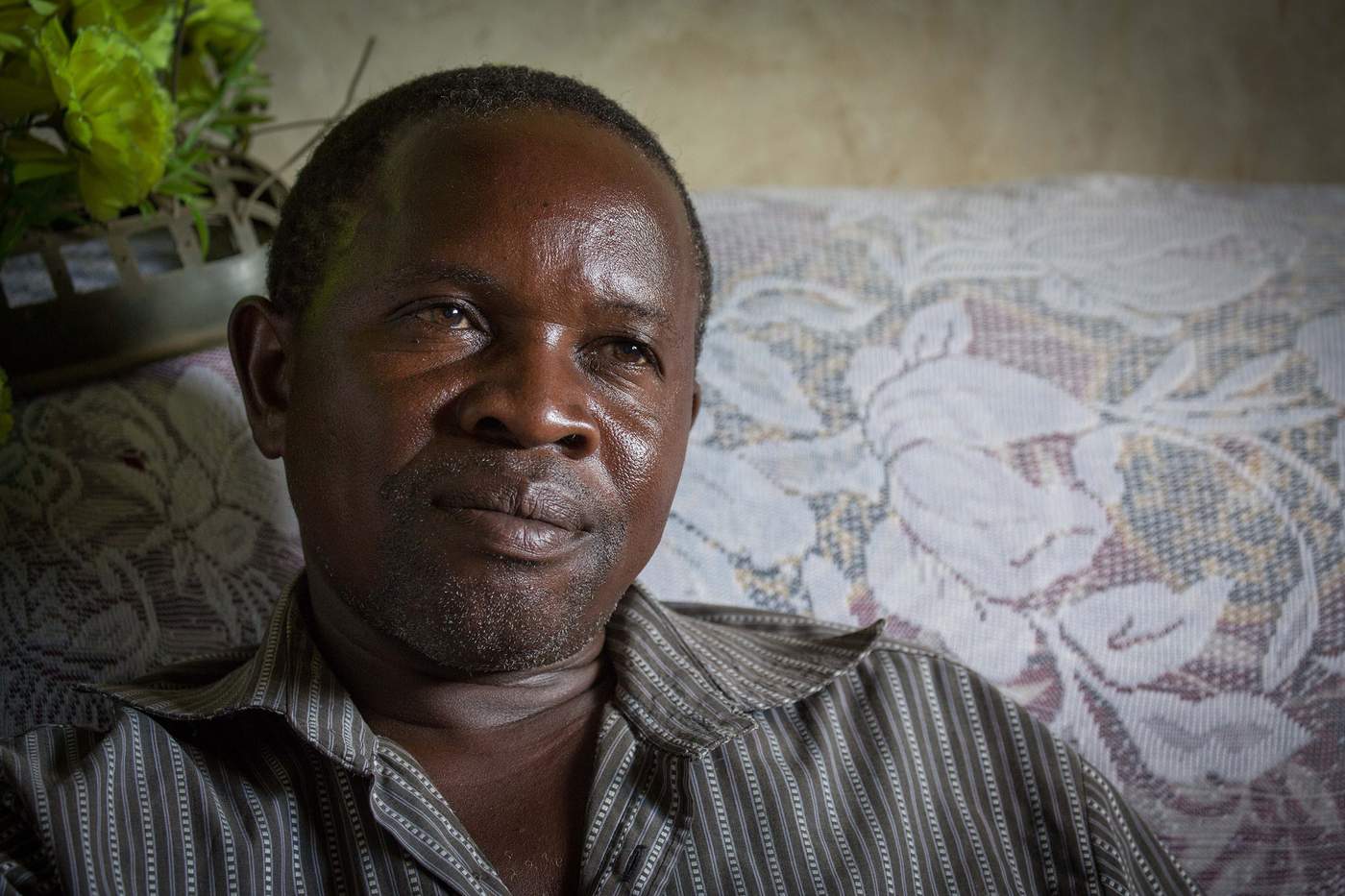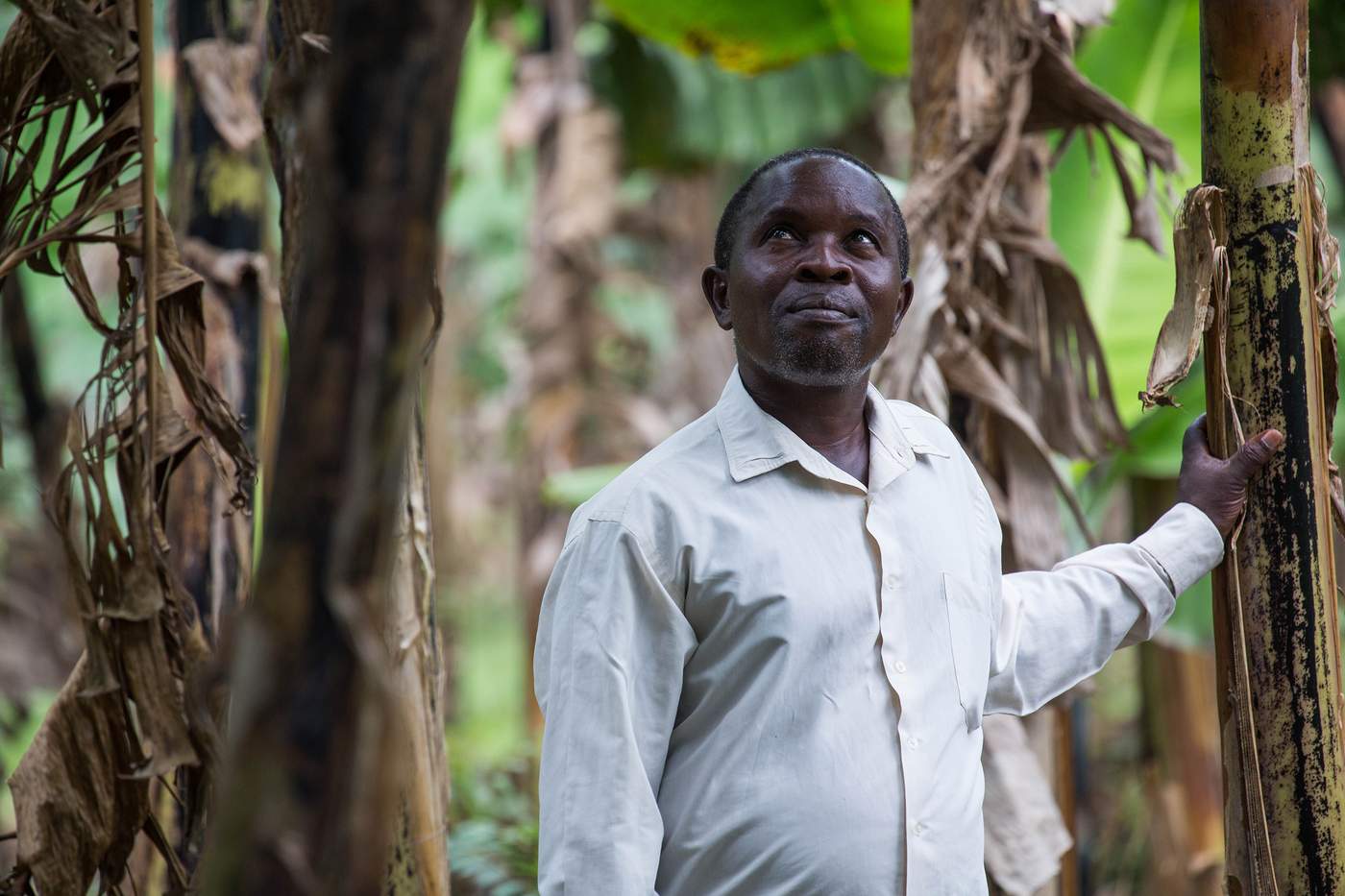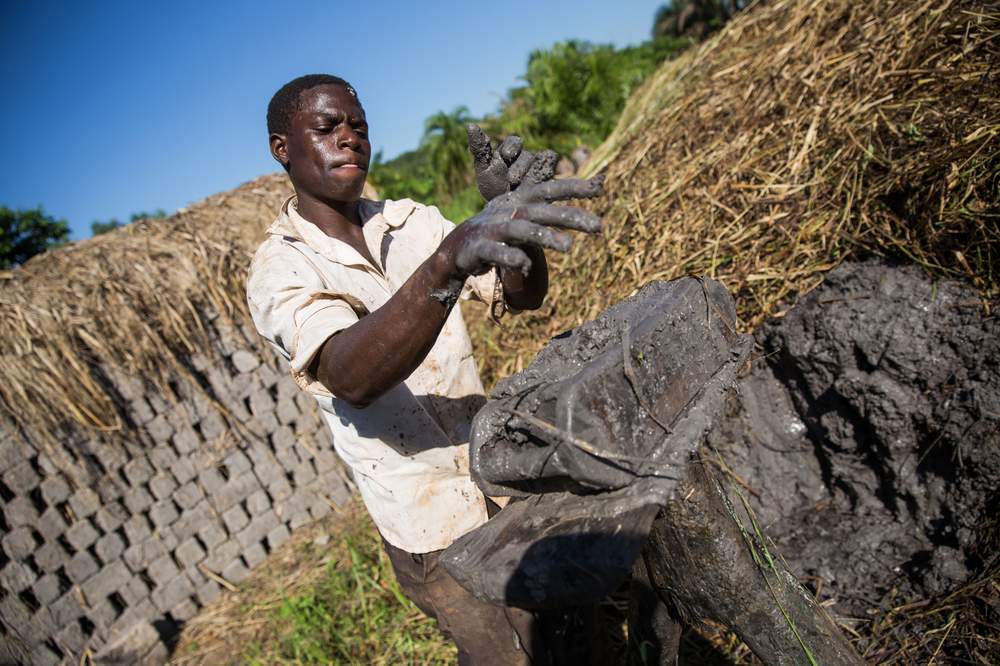David has also installed electricity, enabling his children to watch TV. “When there was no electricity, they would wander off to the neighbors and pick up bad habits. Now that we have electricity, they stay home. Being able to have the lights on after dark also helps them study well in the night,” he says.

David’s children join him to watch TV in the living room.
There is an increasing demand for home improvement loans says Omolo. “In any one week, we will see 100 people who would like a loan. But we can only serve a few.”
Currently Habitat Uganda’s retail lending program has more than 1,000 clients who have taken small loans to build, repair and improve their homes. David will again be joining the queue. He plans on applying for another loan to put up a kitchen, garage and a chicken coop.
Brent Potts, Habitat Uganda’s National Director, says he would like to scale up the engagement and focus on financial literacy training. He would also like to broaden the base of stakeholders to engage more effectively with Uganda’s various communities to improve shelter and lives.
Learn more about Habitat for Humanity's work in Uganda.
Want to receive housing news from Europe, Middle East and Africa?
Subscribe to our newsletter 'a decent place to live'.



